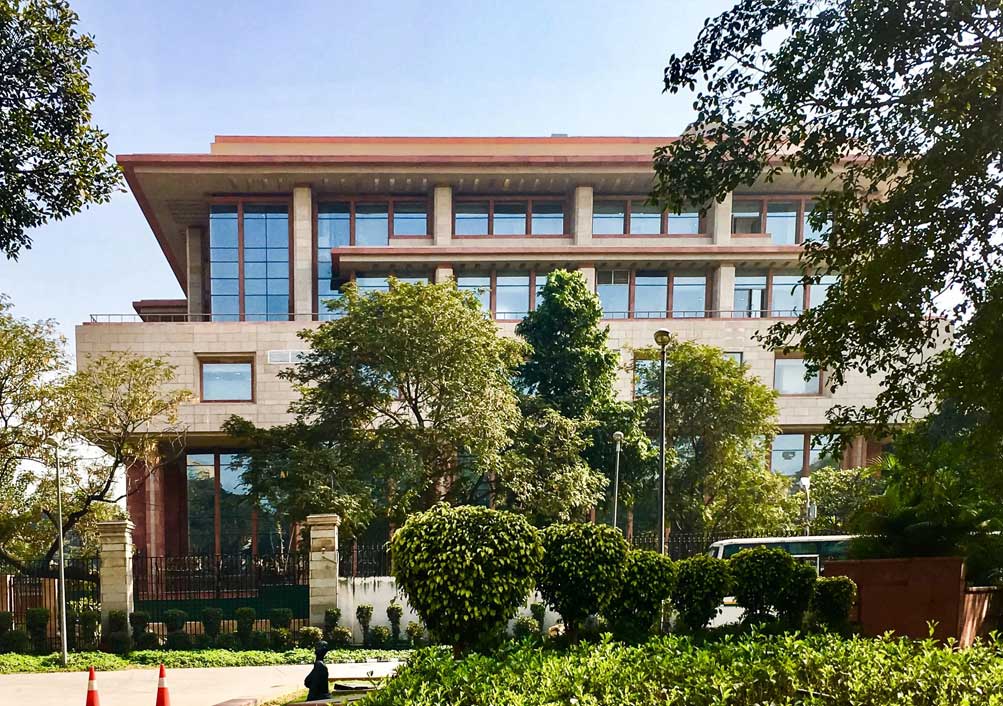In W.P.(CRL) 562/2023 -DEL HC- Delhi High Court rules ED cannot continue PMLA proceedings based on compounded scheduled offenses
Justice Amit Sharma [24-11-2023]

Read Order: Rajinder Singh Chadha V. Union of India Ministry of Home Affairs Through its Chief Secretary & Anr.
Chahat Varma
New Delhi, November 28, 2023: In a significant ruling, the Delhi High Court has held that the Enforcement Directorate (ED) cannot continue proceedings under the Prevention of Money Laundering Act (PMLA) if the underlying scheduled offenses have been compounded.
The relevant facts of the case were that two FIRs, were registered under Sections 420/406/120B of the Indian Penal Code, 1860 (IPC) at PS Economic Offences Wing (EOW). Both FIRs arose from allegations that despite payment of monies in 2006-07, the complainants did not receive possession of flats as promised by the accused company, M/s Uppal Chadha Hi-Tech. It was alleged that the petitioner, in his capacity as a director of the firm, was responsible for siphoning off the funds collected from the complainants. During the pendency of the trials, the accused persons settled the disputes with the respective complainants amicably. Thereafter, an ECIR was lodged on 26.07.2019 by the Directorate of Enforcement against M/s Uppal Chadha Hi-Tech, the petitioner, and other individuals. Following this, the department conducted several search and seizure operations, including the retention of records and digital devices seized under the PMLA. Subsequently, a show-cause notice was issued to the petitioner under Section 8(1) of the PMLA, requiring a written response as to why the department's application under Section 17(4) of the PMLA should not be allowed.
The primary issue before the Court was whether the department was justified in continuing the investigation/proceedings in the impugned ECIR, initially registered based on scheduled offences in FIR No. 16/2018 and subsequently continued based on FIR No. 49/2021 and FIR No. 55/2023, especially considering that the scheduled offences in the first two FIRs were compounded/quashed.
The single-judge bench of Justice Amit Sharma highlighted that the Supreme Court, in Vijay Madanlal Choudhary & Ors v. Union of India & Ors [LQ/SC/2022/908], distinctly differentiated between an ECIR under the PMLA and an FIR under the provisions of the Cr.P.C. The Supreme Court had acknowledged the department's assertion that the ECIR is an 'internal document' created by them.
In the present case, the bench acknowledged that the ECIR was registered based on a prima facie satisfaction for the commission of an offence under Section 3 of the PMLA. The department, through this ECIR, focused on the alleged 'proceeds of crime' generated from the commission of scheduled offences in the FIR registered at the instance of home-buyers/investors, rather than investigating the case of home-buyers/investors concerning the allegations in the first two FIRs. While recognizing that the third FIR, FIR No. 55/2023, also related to the same project as the two previous FIRs, the bench stressed that, in the present factual context, even if separate FIRs were registered at the instance of distinct home-buyers/investors, each FIR could not be considered a separate cause of action for the registration of different ECIRs.
The bench further observed that in the mentioned cases, the 'scheduled offence' was either quashed or compounded entirely. However, the 'scheduled offences' through the third FIR still existed. It was also noted that even in an FIR being investigated by the local police involving multiple complainants, compounding with some of them would not be a ground for quashing the said FIR. However, partial compounding/quashing was permissible.
The bench, referring to the judgment in Vijay Madanlal Choudhary, highlighted that the offence under the PMLA was dependent on illegal gain of property as a result of criminal activity relating to a scheduled offence. It was stated that if a person was finally discharged/acquitted of the scheduled offence or the criminal case against him was quashed by the competent court, there can be no offence of money laundering against him or any claiming such property. Therefore, the bench held that if there was no scheduled offence, there can be no offence of money laundering with respect to the same.
Consequently, the Court held that while the ECIR dated 27.06.2019 cannot be quashed due to the registration of FIR No. 55/2023 dated 10.07.2023 under Sections 409/420/120B of the IPC at PS EOW, legitimizing the existence of the ECIR, the ‘scheduled offences’ in FIR No. 16/2018 dated 24.01.2018 and FIR No. 49/2021 dated 12.03.2021, both under Sections 420/406/120B of the IPC, had been compounded and quashed. As a result, the department cannot initiate or continue any proceedings, including investigations, in connection with these two FIRs.
Thus, the petition was partly allowed and disposed of accordingly.
Sign up for our weekly newsletter to stay up to date on our product, events featured blog, special offer and all of the exciting things that take place here at Legitquest.




Add a Comment